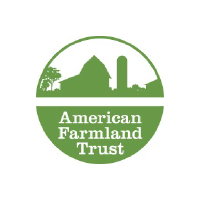Achieving a Smart Solar Buildout with Local and State Policy
Industry > Farming and Agriculture2/28/2024 6:00 PM
American Farmland Trust's webinar offers policy insights for maximizing solar benefits on farmland. Learn more on WebinarCafe.
Farming and Agriculture Webinar Benefits
Maximizing solar’s positive benefits for farmers and rural communities and minimizing the negative impacts on farm viability and farmland will require proactive policymaking. State and local governments are primarily responsible for the land use and permitting decisions that shape the future of their communities. This webinar will focus on ways that state and local governments can protect farmland, farm viability, rural economies, and agricultural land access while accelerating the development of solar to address climate change, highlighting recommendations recently released by AFT (linked below). This webinar will be recorded and both posted to AFT’s website, farmland.org/solar, and shared with all registrants. Specifically, the webinar will cover recommendations that: 1) Empower communities to define and steer solar development to preferred sites, like the built environment and contaminated and marginal land, to prevent the conversion of land well-suited for farming out of production, 2) Require minimum standards for developers to follow that will safeguard soil health and productivity during construction, operation, and decommissioning, and preserve future water access and rights when siting solar on farmland, 3) Expand development of agrivoltaic projects (the pairing of solar energy generation with agricultural production) through research, demonstrations, incentives, and support, and 4) Advance equity and farm viability by promoting distributed solar and protecting low-income ratepayers from potential energy cost increases. To view the recommendations and learn more, visit https://farmland.org/smart-solar-policy-recommendations/ Please reach out to Jaimee Harrison at jharrison@farmland.org with questions.

